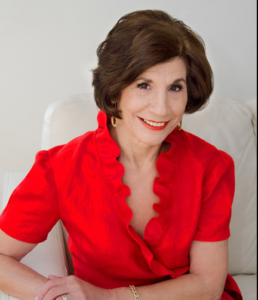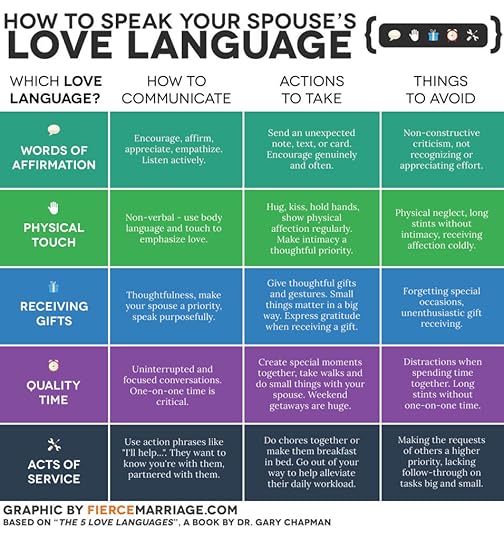Hannah Braime's Blog, page 15
December 25, 2016
How to Do a Personal End-Of-Year Review
The year is drawing to a close (already…) and it’s time for our next trip around the sun. One of my favourite things to do at this time of year is set aside time to reflect on the year gone by and plan for the year ahead. Each year around this time, I do two reviews: one for my business and a personal end-of-year review alongside that. In this post, I want to share the template I use for the latter process. It’s simple but thorough and you can easily adapt it to suit your particular situation and preferences.
1. Start your personal end-of-year review by reflecting on the different areas of life
These are:
Job/career
Health and fitness
Finances
Family
Romance/dating
Friendships
Fun and leisure
Home/physical environment
Personal growth and development
For each area, answer the following questions:
What worked this year?
What is still a work in progress in this area?
What are the wins from this area of life over the past year?
And the mishaps?
Where are the gaps between what I’m saying I want in this area of life and how I’m actually living it?
What lessons have I learned from this area of life over the past year?
How do I feel about each area when I think about the past year?
How do I want to feel about each area this time next year?
Who do I want to be in this area of my life over the next year? What qualities do I want to embody?
2. Choose 3 of the above areas to focus on over the next six months
There are a couple of ways to make this choice. If you have specific areas of life that need some TLC, it might be a good idea to focus on these first (not sure what they are? Grab the workbook Say Hello to Your Future Self from the Becoming Who You Are Library to find out). If things are going well across the board, consider choosing the areas with the most potential or that would excite you to focus on.
For each of the three areas you’ve chosen, answer the following questions:
Where would I ideally like to be with each of these areas in a year’s time?
What do I need to do to get there? What tangible steps do I need to take to make those things happen?
How will I know when I get there? How can I measure my progress?
What do I need to learn? Are there any knowledge gaps I need to address to take these steps?
Who could be useful for support/guidance? Who do I know who is already rocking these areas of life? And how might they be able to support me?
Note: these don’t have to be people you know personally, they can be people whose books you read, people who model who you’d like to become and how you’d like to show up in the world, and public figures you admire.
What do I think are likely to be my three biggest obstacles as I take these steps?
What can I do in other areas of my life to support these steps?
For example, let’s say improving your health and fitness is a goal and going to the gym three times a week is one of the tangible steps. A complementary habit might be making sure you go to bed by a certain time so you can get up early to work out.
Who do I need to become to live this vision? What qualities will that version of myself embody?
3. Create your roadmap
This is an important part of the personal end-of-year review that we often miss out on. Decide now when and how often you will take those tangible steps and schedule them in to your calendar. Here are two suggestions to help:
Focus on making this sustainable.
Using the gym example above, going from zero visits per week straight up to five visits per week is unlikely to last. Start with one or two visits and build up from there. Remember: there is no rush and diving into extremes is often a not-so-subtle form of self-sabotage. Make it as easy as possible for yourself to succeed.
Focus on one change at a time.
This is also about giving yourself the best chance of success. Once the first change has become your new “normal,” then you can move on to something else. Trying to change all three areas of your life at once and in one go will likely overwhelm and hinder your progress more than it will help.
4. Let go of your vision
Having created a vision in part 2, I now invite you to let go of it. Why?
Because the only thing you can control is the process and your input, not the outcome.
Your vision is also likely to change as you make progress. As important as qualities like consistency and tenacity are, we also need to be able to let go of plans and goals that are no longer relevant. The only thing you need to focus on at any given time is the next tangible step.
This is just one way to do a personal end-of-year review. Other suggestions and templates you can use include:
Choosing a theme or word for the year ahead (Susannah Conway has created an excellent guide to this process here)
Desire mapping
Further reading:
How to Conduct Your Own Annual Review – Chris Guillebeau
How to Conduct a Personal Mid-Year Review – Brendan Baker
Your Year in Review: 50 Questions to Help You Reflect, Appreciate and Get Excited – Anuschka from Into-mind
Do you do a personal end-of-year review? What prompts and/or tools do you use? Leave a comment and share your suggestions.
Image: Simson Petrol
The post How to Do a Personal End-Of-Year Review appeared first on Becoming Who You Are.









December 11, 2016
12 Fun Things to Do If You’re Alone for the Holidays
This is the first year my husband and I will spend the holidays as a family of three. I love this time of year and I’m looking forward to taking tiny human out to see the lights; I have plans to make lots of yummy Christmas food (although we’ll see how much of that I actually end up doing) and I’ve started my annual campaign to persuade Mr BWYA that we should get a Christmas tree. For the baby, of course… At the same time, I know people can find themselves alone for the holidays for many reasons. The emphasis on togetherness during this period can bring home a sense of loneliness and discomfort, which might leave you feeling at a loose end even if—like me—you usually enjoy your solo time.
Whatever situation we’re in, we can all start by checking any expectations or beliefs that the holidays “should” be a specific way. There can be a lot of pressure on one or two days of the year to be perfect in all ways, and life isn’t like that. You’re allowed to feel however you feel about the holidays. With that being said, if you’re alone for the holidays you can make the most of having a few free days to spend time with yourself. Here are a few suggestions.
1. Do something you used to enjoy as a kid
When was the last time you indulged in play? What did you used to love doing that’s fallen by the wayside lately? Give yourself permission to do that now.
2. Get stuck in a meaty book
I enjoyed this one earlier this year. You can also check out these suggestions for reading on relationships, self-care and personal growth.
3. Start that project you’ve been dreaming about since forever
There’s no time like the present. Make the most of having a few free days to immerse yourself and enjoy.
4. Try something new
Stuck for inspiration? Take a walk through your local area, look at community boards online and in local shops (Starbucks usually has one). Pick something that strikes your fancy and go for it.
5. Make a list of everything that brings you joy
Pick three things off the list and do them.
6. Make a list of everything that brings you comfort
Pick three things off the list and do them.
7. Enjoy an at-home retreat or a DIY creative retreat
Use the time for intensive self-care or give your creativity the chance to run wild. I wrote more about creating your own DIY creative retreat here.
8. Go for a hike or a long walk, just you and your thoughts
If you live in an urban environment, get out into the country. Alternatively, indulge your urban curiosity and open yourself up to seeing your local area in a new light. Consider going music and podcast free (although if you want something, there’s plenty of back episodes of the Becoming Who You Are podcast to enjoy).
9. Have a holiday clear out and cleanse your physical space
Put on your favourite music and get rid of anything you own that no longer brings you joy. I had mixed feelings about this book, but it shares useful tips for decluttering and creating a peaceful home environment.
10. Recreate your favourite aspects of the holidays in solo form
Is it the food? Cook yourself a slap-up meal. The movies? Queue up a few and enjoy a marathon. Do you have little traditions you honour each year? Make time for those.
11. Volunteer
If you don’t want to be alone for the holidays, this is a life-enriching way to connect to a purpose that’s bigger than yourself. Spend time at a local animal shelter or soup kitchen. Due to people travelling and taking time off during the holidays, you might find they’re glad of an extra helping hand.
12. Do a yearly review
Take time to reflect on your last trip around the sun and dream and scheme for the next. I’ll be sharing the template I use for doing a personal end-of-year review next time.
What suggestions do you have for fun things to do if you’re alone for the holidays? Leave a comment and share your thoughts.
Further reading: holiday permissions & 4 of the best planners for a happy and healthy year
The post 12 Fun Things to Do If You’re Alone for the Holidays appeared first on Becoming Who You Are.









November 30, 2016
#105: The Surprising Lesson We Can All Learn From Japanese Pottery
What does Japanese pottery have to teach us about feeling flawed and being kind to ourselves? Quite a lot, as it turns out. In this episode, I’m sharing the philosophy behind Kintsukoroi or Kintsugi, a method of mending broken, chipped or scratched pottery that turns the object’s flaws into a thing of beauty rather than trying to hide them. Keep listening to discover how we can apply this to our own experiences and lives.
Useful Links
Self-Compassion: The Proven Power of Being Kind to Yourself by Kristin Neff
Say Hello
Hannah
Pinterest: pinterest.com/hannahbraime
Facebook: facebook.com/becomingwhoyouare
Website: becomingwhoyouare.net
Get a Free Audiobook from Audible
This podcast is brought to you by Audible.com. If you enjoy Becoming Who You Are, you can support the show by registering for a free 30-day trial using the link below. As part of your trial, you’ll get a free audiobook and can cancel any time.
Subscribe to the Podcast
Intro and outro: Stephanie Murphy
The post #105: The Surprising Lesson We Can All Learn From Japanese Pottery appeared first on Becoming Who You Are.










November 27, 2016
The Introvert’s Guide to Enjoying the Holidays
This time of year can be meaningful, fun and a chance to create special memories. At the same time, enjoying the holidays, and its busy social calendar, can be a challenge for those of us on the more introverted end of the energy spectrum.
Introverts are energised by spending time alone. Note: this is not the same as being shy or antisocial. Instead, it’s about where you derive your energy. If you’re someone who thrives through social interaction and stimulation, chances are you’re an extrovert. If you have a ceiling (especially in large group situations or around people you don’t know) and reach a point where you need to take a break to decompress, you’re probably more of an introvert.
During the holidays, more so than any other time of year, there’s a lot of pressure to be a social butterfly, do all the things and attend all the events. If you’re wondering about making the most of the next few weeks and enjoying the holidays without running out of steam, here are a few suggestions:
Start by asking: how do I want to feel?
If we feel a sense of trepidation about what the holiday season will be like, we can spend so much time worrying about the worst-case scenario we lose sight of how we want to feel. In this scenario, we can start to feel like the holidays are something that happen to us, rather than an experience we can choose. Shifting our focus back to how we want to feel and what we want to experience puts us back in the driver’s seat, centred on what we want to create instead of what we want to avoid.
Prioritise the activities and commitments that evoke those feelings
Now you know how you want to feel, prioritise the activities and commitments that will evoke those feelings for you. Look at what’s worked in the past (and what hasn’t), and start with that. Pay extra special attention to the things on your When Life Works List. For the activities and commitments that tend to evoke undesirable feelings, think about whether there’s a way you can reframe your experience to make it more enjoyable or consider declining this year.
Get clear on group needs and expectations
When we’re in group situations where everyone has different needs and expectations, it’s super helpful to get clear on what those needs and expectations are. That starts with knowing what everyone wants to get out of the time spent together.
When my husband and I take a trip or a staycation, we get clear on what we each want to get out of the time and how we’d ideally like to spend it. This helps us be aware of each other’s vision and expectations. Then, we do our best to create a win-win situation where we can both get what we want.
Honour your energy
If you’re energised by spending time alone, honour that. Just because everyone else is still going strong doesn’t mean you have to.
When you’re feeling drained by a social situation, forcing yourself to carry on will only leave you feeling more drained. Rather than getting to the point where you want to bite everyone’s heads off and/or disappear down the back of the sofa for eternity, take a break or bow out. No one else will take care of your energy for you. Take charge of nurturing your energy and you’ll find the holidays are a lot more enjoyable.
Make the most of micro-breaks
On the days when you find yourself in social butterfly mode, focus on micro breaks for a quick recharge. This might look like 10 minutes in the bathroom, a quick walk down the street, or a 20-minute read alone in your room. The kind of break you take doesn’t matter so much as giving yourself a breather and chance to recharge. We’re not only likely to enjoy the holidays a lot more if we do this, but we’re also likely to be a nicer person to be around!
What suggestions do you have for enjoying the holidays as an introvert? Leave a comment and share your thoughts.
Further reading: Let’s All Stop Apologising for These Things… & How to Thrive as an Introvert with Tanja Gardner
Save 50% off How to Start Journaling for Personal Growth before Friday
 Journaling is a powerful personal development tool, but it can also be hard to know where to start or how best to journal for results. How to Start Journaling for Personal Growth teaches you everything you need to get started with a journaling practice that will deepen your self-awareness and enhance your personal development.
Journaling is a powerful personal development tool, but it can also be hard to know where to start or how best to journal for results. How to Start Journaling for Personal Growth teaches you everything you need to get started with a journaling practice that will deepen your self-awareness and enhance your personal development.
Learn everything you need to get started with journaling today
Discover different types of journaling to invigorate your practice
Identify the journaling techniques that will deepen your personal development
Explore your inner world through regular journaling, and find out how to revisit old entries for greater insight and awareness
Transform your journaling insights into real-life change
Get 50% off the course until this Friday (2nd December) using the code THANKSGIVING. Find out more here.
The post The Introvert’s Guide to Enjoying the Holidays appeared first on Becoming Who You Are.









November 13, 2016
The One Thing to Remember When Life Feels Like It’s Falling Apart
So you’re in it: that dark, muddy place and time when life feels like it’s falling apart. Perhaps you’ve experienced a single, defining, life-changing event that’s catapulted you into change. Perhaps it’s been a slow slide downwards to the point where you can’t see a way back.
Whatever’s happening, I know life hasn’t always felt it’s falling apart, but I trust there are good reasons it does right now.
The thing we tend to forget—that I forget and I wonder if you’ve forgotten right now too—is that we’ve been here before. Maybe not in quite the same way, but we’ve been at our “bottom.” We’ve hit those times when it didn’t feel like things could get any worse.
And yet we have this amazing track record behind us.
When life feels like it’s falling apart, remember this: you’ve made it through, 100% of the time.
When life feels like it’s falling apart, it’s easy to focus on all the things that are wrong, bad, lacking, destroyed, gone, lost, betrayed, and forsaken.
But among all those things are the many things that are not.
The things that remain. The breeze on your skin. That song you love to listen to. All the kind words and meaningful moments we’ve collected over the years. You are still here and you’re still moving forward.
And there are those days you’ve made it through, even if they feel like a distant memory right now. So far, you have an impeccable track record, a 100% success rate, of making it through those days. Congratulations. I don’t know about you but I look at some of my dark pits from the past and I think “Yes, that’s an achievement.”
And, when I look back at the cycles of my life, I realise everything ebbs and flows. Just like winter, spring, summer and autumn march onward, cycling forward. So do we, and this too shall pass. Even if this feels like the worst thing, unlike anything you’ve ever faced before, think back to the last time you felt this way: you made it through. You’ll make it through again, and you’ll raise that bar of resilience and self-trust for the future.
Wherever you are right now, it might not be pleasant, it might not be fun, you might not see a way out (yet), but here’s what you’ve proven countless times before:
You’ve got this.
Take a deep breath, and ride the wave.
Image: Andy Wang
The post The One Thing to Remember When Life Feels Like It’s Falling Apart appeared first on Becoming Who You Are.









November 6, 2016
The 2016 Becoming Who You Are Advent Calendar Is Almost Here…
The Becoming Who You Are Advent Calender is a set of 25 prompts leading up to Christmas. It’s a review of the year that has been and an opportunity to dream and scheme for the year to come. It’s a chance for you to add some reflective time to a busy period and create space to consciously evaluate 2016 while exploring what you want from 2017.
With the prompts, you’ll also receive a weekly suggestions for activities and practices that will help you stay connected to yourself.
The calendar series starts on 1st December. It’s free to register and much better for you than chocolate, so I hope you’ll join us in bidding adieu to 2016 and laying some solid intentional groundwork for the next 12 months.
Enter your details below to join us.
The post The 2016 Becoming Who You Are Advent Calendar Is Almost Here… appeared first on Becoming Who You Are.









 Related StoriesHow to Master the ABCDs of HappinessWhat Is Your Love Language?#101: Dealing With Self-Censorship and Resistance in Journaling
Related StoriesHow to Master the ABCDs of HappinessWhat Is Your Love Language?#101: Dealing With Self-Censorship and Resistance in Journaling
November 3, 2016
#104: The Difference Between Coaching, Counselling and Therapy
Do you know what the difference between coaching, counselling and therapy is? This can be something that causes a lot of confusion and involves many misconceptions. In this episode, I’m sharing some of the key differences between each of these services, including when and in what context each can be useful.
Useful Links
The Examined Life by Stephen Grosz
BACP
UKCP
The National Board of Certified Counselors
Networked Therapy
Psychology Today Therapists
Say Hello
Hannah
Pinterest: pinterest.com/hannahbraime
Facebook: facebook.com/becomingwhoyouare
Website: becomingwhoyouare.net
Get a Free Audiobook from Audible
This podcast is brought to you by Audible.com. If you enjoy Becoming Who You Are, you can support the show by registering for a free 30-day trial using the link below. As part of your trial, you’ll get a free audiobook and can cancel any time.
Subscribe to the Podcast
Intro and outro: Stephanie Murphy
Image: Jen Chillingsworth
The post #104: The Difference Between Coaching, Counselling and Therapy appeared first on Becoming Who You Are.










October 31, 2016
What Is Your Love Language?
Do you know your love language? I didn’t have the foggiest until I read the book I want to share with you this month. The 5 Love Languages is a framework developed by Dr. Gary Chapman, a relationship counsellor and pastor. In his eponymous book, he outlines the different love languages, explaining how we can identify our love language and use this template to better meet our and our partner’s needs in our relationship.
What are the 5 love languages?
The 5 love languages are:
Words of affirmation
Quality time
Receiving gifts
Acts of service
Physical touch
Our love language is the things that help us feel loved in our relationships. For example, if our primary love language is quality time, our partner’s time and attention is going to represent an act of love to us. It’s also how we’ll show love to our partner.
None of the love languages are better or worse or more or less healthy than the others, they are just different. We need to know our personal love language so we can make specific requests and give ourselves the best chance of being in a relationship that meets our needs. We also need to know our partner’s love language so we can help them meet their needs and make the relationship as win-win as possible.
Most of us will have a different love language to our partner
And this is where the fun begins. My husband’s love language is acts of service. For him, showing me how to do something techy or helping me out with something is his expression of love. It’s meaningful to him when I do things for him too.
My love language is words of affirmation. Words are meaningful to me (not surprising, given how much I love writing), so I appreciate it when my husband expresses love and appreciation through words, either verbally or in writing.
Before knowing about the concept of love languages, we could totally miss each other in these areas without understanding why. He didn’t understand that words of affirmation were so important to me (and I often wrote off my desire for them as shallow and needy). Equally, I couldn’t understand why what I now recognise to be requests for acts of service were so important to him, and perceived these requests as criticisms or demands.
Without care and attention, these are the kinds of things that start small but can snowball in long-term relationships. Knowing each other’s love language is by no means the cure for everything that might ail a relationship. Our respective childhoods and the resulting baggage usually have a lot of influence in the matter too. But it does help each partner feel more secure, loved and appreciated. Now I know what my husband’s love language is, I can not only help him meet his needs in the relationship and be clearer about meeting mine, but I can also see and appreciate when he is expressing love to me—and vice versa.
This graphic from Fiercemarriage.com shows the different ways of communicating each love language, as well as things to avoid:
© 2015, Ryan & Selena Frederick, Fierce Marriage. All rights reserved. Originally published at www.fiercemarriage.com.
Struggling to identify your love language? Think about what hurts you most…
When I started exploring what my love language might be, I found it hard to decide between words of affirmation, physical touch and quality time. Receiving gifts and acts of service didn’t resonate with me, but all three of those things felt important.
When love languages seem tied, Gary Chapman recommends thinking about what hurts you the most. For me, it was clear. Withdrawal of affection and a lack of quality time, neither of those things are ideal, but it’s unconstructive criticism and a lack of acknowledgement that really cut to the bone. So, while physical touch and quality time are important, words of affirmation is my primary love language.
What do you think your primary love language is? Leave a comment and share!
The post What Is Your Love Language? appeared first on Becoming Who You Are.









October 17, 2016
Age Is Only a Number: Why It’s Never Too Late to Discover Yourself
This is a guest post by Jane Wyker.
We live in a culture that greatly favours youth and looks upon ageing as decline. How do you perceive yourself as you age? When do you think you leave youth behind?
According to George Bernard Shaw, youth is wasted on the young. As I see it, through our life choices we gain more understanding and opportunity to discover our purposes, develop our talents and learn what it means to love. We have time to deepen our spirituality and learn what makes us happy. We can then contribute more to each other and to the world.
I see life as an inside out process and the key to a full and satisfying life is self-discovery. The mind leads the body, and our outer lives are clear mirrors of our beliefs. Our thoughts, and the feelings they generate, have a huge impact on how healthfully and gracefully we live and age.
Holding onto painful, fearful and angry thoughts and feelings undermine our health and creativity. The converse is also true — when focused on positive thoughts associated with hopeful, grateful, happy feelings, our body chemistry responds with well-being and healing. In his renowned book “Anatomy of an Illness,” Norman Cousins reveals how he was miraculously healed of a painful and irreversible disease with daily doses of laughter, as he watched endless hours of comic movies and videos!
We can look inside and discover what we think and feel anytime — from childhood to old age. We have more freedom to do this as adults since we are no longer dependent on anyone for our survival. Self-discovery requires living in the present, not only with our outer experience, but also our inner life. How present are we to what we think and feel, right here and now?
• Does your belief support your well-being and desires, or is it holding you in the place you have been standing for years?
• Are you repeating experiences, perhaps with different people in different locations, that feel the same and have the same unwanted results?
• Has something new opened inside of you that feels expansive and optimistic?
I am now 80 years old, and have attended to my inner process since I was 34. I have found it to be a goldmine — a consistently fascinating practice that connected the dots of why and how I made my choices, and how they created happiness or sorrow. I came to understand that all these choices were valuable, and contributed to the person I am today. I was gradually able to understand why I chose limiting roles, relationships and patterns, freeing me to choose more fulfilling ones. With each step inward my discord diminished, giving me more energy to express myself, more willingness to take risks, more connection to my creativity, more ability to love myself, others and life as it is. By sorting out past limiting beliefs I have come into closer contact with my authenticity, my soul.
The choice to look inward and discover your authentic self is a vital decision in moving towards personal happiness. It can be made anytime, but many never choose it. Some people, when looking at their lives, don’t like what they see and blame their parents, mates or the world for their unhappiness. That will never lead to healing. Most only turn inward when in extreme pain, when their lives are not working and they have no more outer answers.
How intimately do you know yourself? How connected to your life’s purpose are you?
Your age is only a number. It is never too late to discover yourself. Now is the only time there is!
Jane Wyker is a former family counselor, author, mother, teacher and spiritual explorer. Her debut memoir, Soul Selfish: The Awakening of a “Good Girl,” illustrates her journey of becoming aware, learning to focus on personal feelings and desires as well as meeting the needs of family, friends and community.
is a former family counselor, author, mother, teacher and spiritual explorer. Her debut memoir, Soul Selfish: The Awakening of a “Good Girl,” illustrates her journey of becoming aware, learning to focus on personal feelings and desires as well as meeting the needs of family, friends and community.
For more information, please visit www.janewyker.com.
Further reading: Why the world needs you to start taking yourself seriously & struggling with confidence? These 5 truths might help
Image: Lucas Budimaier
The post Age Is Only a Number: Why It’s Never Too Late to Discover Yourself appeared first on Becoming Who You Are.









October 6, 2016
#103: Deepening Self-Trust Through B.R.A.V.I.N.G
In this episode, I’m sharing a useful framework and set of questions from the book Rising Strong by Brené Brown. We can use these questions to deepen trust in our relationships with others, and especially our self-trust in our relationship with ourselves.
Useful Links
The Power of Vulnerability – Brené Brown’s TED talk
The Powerful 3-Word Phrase That Makes Me a Better Person
Say Hello
Hannah
Pinterest: pinterest.com/hannahbraime
Facebook: facebook.com/becomingwhoyouare
Website: becomingwhoyouare.net
Get a Free Audiobook from Audible
This podcast is brought to you by Audible.com. If you enjoy Becoming Who You Are, you can support the show by registering for a free 30-day trial using the link below. As part of your trial, you’ll get a free audiobook and can cancel any time.
Subscribe to the Podcast
Intro and outro: Stephanie Murphy
Image: Phoebe Dill
The post #103: Deepening Self-Trust Through B.R.A.V.I.N.G appeared first on Becoming Who You Are.
















